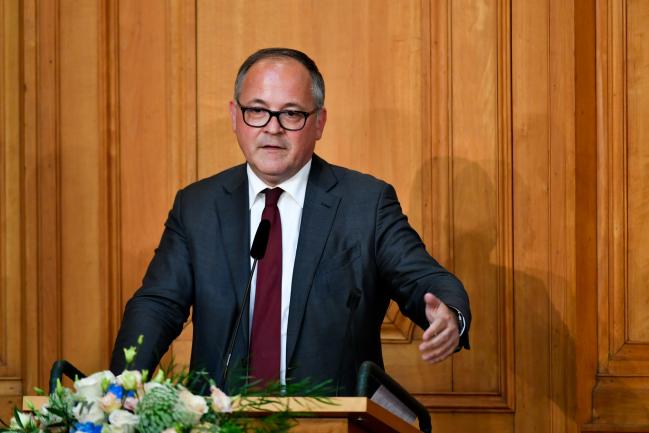(Bloomberg) -- Go inside the global economy with Stephanie Flanders in her new podcast, Stephanomics. Subscribe via Pocket Cast or iTunes.
Negative interest rates are not the main culprit for European banks’ feeble profitability, European Central Bank Executive Board member Benoit Coeure said, signaling the institution is in no rush to bring relief.
Sub-zero rates are costing euro zone banks roughly 8 billion euros ($9 billion) annually, which is “really peanuts” in this landscape, Coeure told lawmakers at a French parliamentary hearing on Wednesday. He’s among the potential candidates to succeed ECB President Mario Draghi in November.
“If the fall in bank profitability becomes a problem for the transmission of monetary policy -- that is to say for the capacity of banks to lend to and stimulate the economy -- at that point it can become a problem for us. Today we don’t think that is the case.”
The ECB’s deposit rate has been below zero for almost half a decade, and Draghi signaled in April that officials will consider softening the impact on banks. Yet the opposition among his colleagues to ideas such as tiering has grown in recent weeks, with Bundesbank President Jens Weidmann saying it would send the wrong message on when rates will rise.
The German policy maker distanced himself further from the idea on Thursday, telling an audience of saving bank executives in Hamburg that the net effect of tiering for banks could even be negative. He also described any potential relief it could bring to their earnings as “noticeable, but insignificant.”’
Coeure said that the main problems for bank profitability are non-performing loans and technological changes that create “very intense” competition in Europe. There are too many banks and not enough consolidation in the 19-nation region, he said.
(Updates with Weidmann in penultimate paragraph.)
